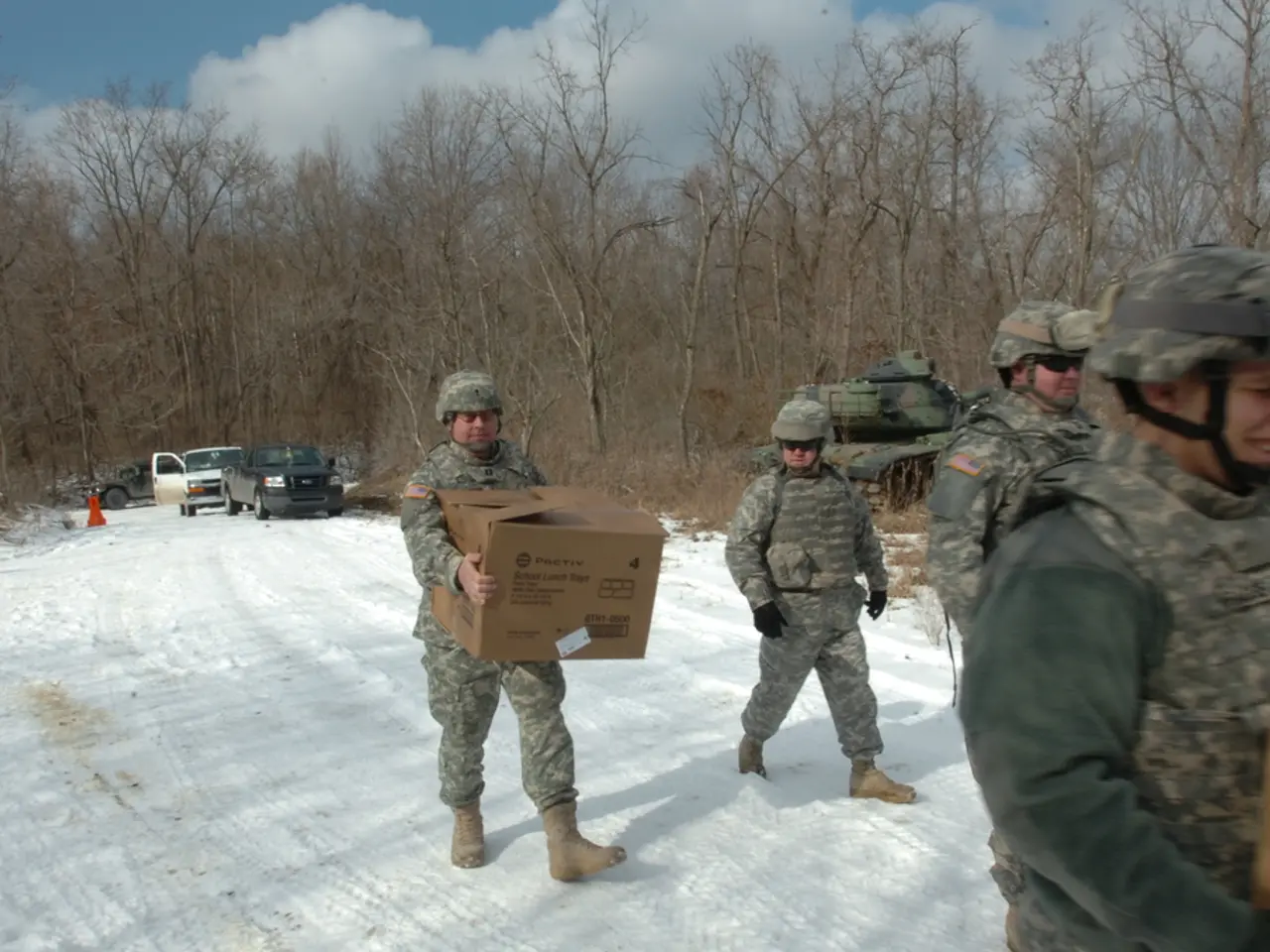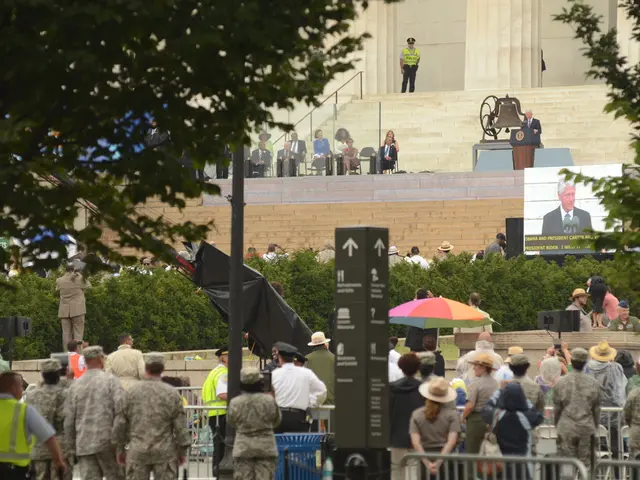Medvedev addresses Zelensky's remarks about a truce lasting three days
In a significant move, Ukrainian President Volodymyr Zelensky has declined Russia's ceasefire proposal for Victory Day. The rejection stems from Russia's inconsistent commitment to halting hostilities, making temporary truces unreliable and complicating efforts to bring an end to the three-year-long conflict.
Zelensky's decision underscores the need for Russia to demonstrate a genuine dedication to peace, rather than merely proposing superficial ceasefires. He emphasised that Moscow's reluctance to commit to a ceasefire prolongs the conflict and hinders the achievement of lasting peace. Russia has yet to set clear conditions or a timeline for halting attacks, a factor that undermines trust in Russia's intentions.
The background to this decision includes multiple calls from Zelensky and international partners for ceasefires that Russia has consistently rebuffed. Recently, former U.S. President Donald Trump shifted his stance from demanding an immediate ceasefire to advocating a full peace accord, a move that aligns more with Russia’s preferred negotiation approach but is viewed skeptically by Ukraine and its allies as a potential tactic by Moscow to delay concessions and continue military advances.
Despite this, Zelensky continues to insist on direct, bilateral talks with Russian President Vladimir Putin, underscoring Ukraine's readiness to negotiate territorial questions and broader peace terms. However, Putin has so far avoided such meetings, publicly expressing openness to talks but failing to follow through. Zelensky has called on the U.S. to impose stronger sanctions if Russia refuses these bilateral discussions, signalling that Kyiv seeks increased international pressure to compel Moscow to engage sincerely.
The implications of Zelensky’s rejection are significant. It stresses Ukraine’s insistence on Russia’s genuine commitment to peace rather than superficial ceasefires. It reinforces Ukraine's position that any peace must include security guarantees and address territorial sovereignty. It signals Ukraine’s reliance on strong Western support and sanctions to pressure Russia. It maintains momentum for direct negotiations, critical for any durable resolution. It highlights mistrust of Russia’s motives and the complexity of peace efforts in a long-standing conflict.
In a related development, Dmitry Medvedev, Deputy Chairman of the Security Council of Russia, has expressed his stance on Zelensky's recent statement. Medvedev pointed out veiled threats contained in Zelensky's words addressed to leaders of many countries. He also stated that Zelensky cannot ensure the safety of world leaders in Moscow. Medvedev emphasised that Kyiv's position and guarantees regarding the Victory Parade in Moscow are of no interest to Russia.
In summary, Zelensky’s rejection of the ceasefire proposal reflects both pragmatic skepticism of Russia’s intentions and a strategic push for meaningful talks and international backing to secure a sustainable peace. The standoff between the two nations continues, with the international community closely watching developments and the potential for a lasting resolution to the conflict.
Russia's proposed ceasefire for Victory Day in the ongoing war-and-conflicts between Ukraine and itself has been rejected by President Volodymyr Zelensky, highlighting the need for politics that prioritize genuine peace rather than superficial ceasefires. Due to Russia's reluctance to commit to a ceasefire and their lack of clear conditions or timeline for halting attacks, trust in Russia's intentions is undermined, leading to a continued reliance on general news updates and strong Western support for pressuring Moscow.








